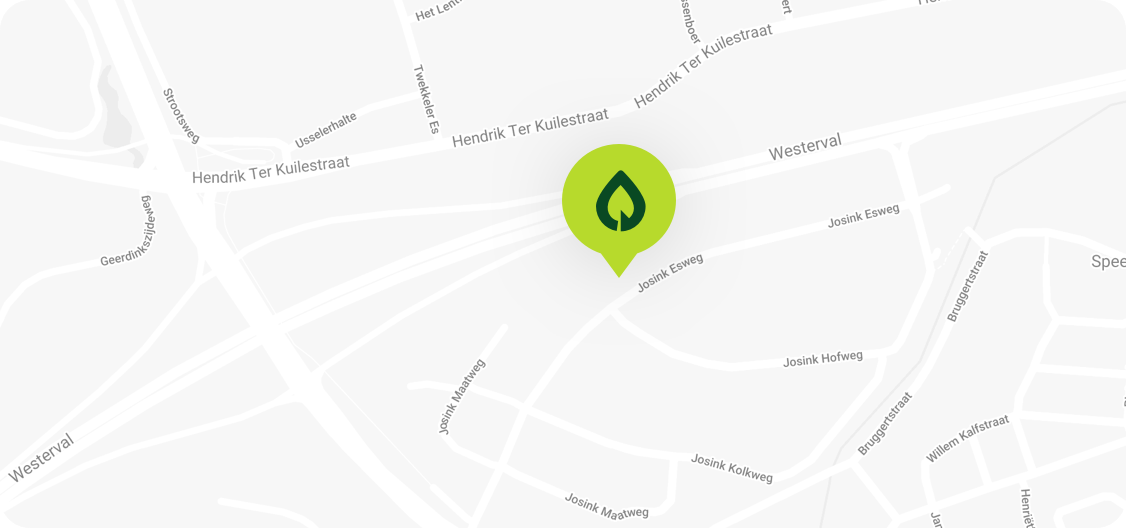




As a company we focus on FPBO (Fast Pyrolysis Bio-Oil), meaning rapid heating of biomass in absence of oxygen. Pyrolysis of plastic is also possible, as is (slow) pyrolysis of old car tires, but that is not our area of expertise and will not be considered as feedstock for our plants. Pyrolysis is not suitable for mixed waste streams containing high percentages of components other than biomass, such as Municipal Solid Waste (MSW) for instance. The reason being that as opposed to gasification the low temperatures in pyrolysis only break-down the feedstock molecules partially. So your product would be of very poor quality and potentially filled with toxic compounds.
Most biomass can be pyrolysed with BTG-BTL’s technology. BTG has tested over 45 different types of biomass and over 90% was succesfully converted into FPBO. Nevertheless BTG-BTL always needs to test the feedstock on their pilot plant to be able to determine the specific yield, biomass behaviour and other specific characteristics. Feel free to contact us for an offer to test your specific feedstock. Or visit PyroWiki for more information.
General optimal feedstock dimensions are:
| Moisture content: | <50% |
| Size: | 3 mm(*Y *Z) |
A dryer is integrated into the BTG-BTL system that can dry the biomass from about 50% to the required moisture content of <10%, without using fossil fuels. A sizer can also be part of the scope. BTG-BTL will be involved in the whole chain that is required to make the pyrolysis installation successfull and therefore BTG-BTL will assist you with all necessary pretreatment steps.
Yes, several methodologies have been developed and approved by the UNFCCC for the application of pyrolysis oil in CDM and JI projects.
• Intermittent energy source: The production and the application of the bio-oil can take place at different locations and different moments in time.
• Availability: Pyrolysis oil can be stored for long periods of time, and is therefore available when necessary.
• Transportation: Transportation of pyrolysis oil is very convenient. Existing infrastructure can be used for transportation of pyrolysis oil.
• Second generation biofuel: Pyrolysis oil produced from non-food related biomass is a second generation biofuel and therefore does not compete with the food industry.
• Reducing dependency on fossil fuels: Pyrolysis oil can be used in applications where it substitutes for crude oil, doing so it offers a unique way to reduce your dependency on fossil fuels.
• Applications: Pyrolysis oil can easily substitute fossil fuels as oil and gas in existing boiler and turbine applications. Refitting the systems requires limited investments and therefore pyrolysis offers a unique opportunity to make your energy supply sustainable.
Yes. A direct route to substitute conventional oil is by replacing up to about 5 wt% VGO with FPBO as feedstock for Fluid Catalytic Cracker (FCC) Unit. This was shown and published by Petrobras with their demonstration scale FCCU. Several refiners have already done commercial trials with pyrolysis oil in their FCC as well. We are currently promoting this route with several international stakeholders. Please contact us and download our two whitepapers on the subject for more information on the subject.
Another route to the refinery is first upgrading the FPBO by hydrotreating aka hydrodeoxygenation. Then larger percentages of fossil feedstocks can be replaced without impact on the refinery operations. This was shown and published at pilot scale by BTG and BUCT for the FCCU and this route is being developed for other refinery units as well.
At high water contents (>30 wt%)pyrolysis oil is sensitive to phase separation yielding a dark-colored aqueous phase, and a tarry organic phase. Phase separation depends heavily on the type of biomass feedstock and its moisture content. Therefore biomass tests are required for each type of feedstock that has not been tested by BTG-BTL before. There is no phase separation for woody material like pinewood.
However, in case phase separation of pyrolysis oil occurs this is not a problem. Continuous stirring of the oil during storage will make the oil easily deployable without extra treatment. Or a certain amount of water can be removed from the oil by our patented moisture reduction equipment, which can be deliverd with our pyrolysis plant.
Yes. BTG Bioloquids pyrolysis plants with a capacity of 5t/h are currently available.
Yes. Pyrolysis oil samples can be ordered from our webshop.
Yes, BTG Bioliquids delivers high quality pyrolysis oil which fulfills the specifications for solids, water content, flash point, pour point, gross heat of combustion, viscosity, density, sulfur and ash content as prescribed in the American ASTM D7544-09 and the European EN 16900-2017 standards.
Yes, BTG Bioliquids has gained experience in setting up supply chains from biomass sourcing up to pyrolysis oil end-use during commercial scale pyrolysis projects in Malaysia and Hengelo (NL). BTG Bioliquids underlines the importance of a working supply chain for the success of a pyrolysis project and is therefore pleased to assist you in the set-up.
Yes, articles can be found in the news and resources section. Also you can always contact us to request additional information at office@btg-btl.com.
We are pleased to answer your questions concerning pyrolysis oil, technology, oil applications, installations and pyrolysis related topics.